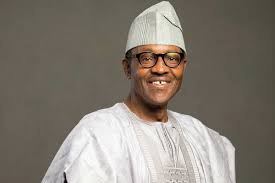-

Nigerian President, Muhammadu Buhari FG advises against non-essential trips to China, four others
- Presidency denies alleged attack on president in Kebbi
President Muhammadu Buhari Thursday appealed to members of the private sector to join hands with the federal government to maximise the negative impacts of the outbreak of coronavirus on the global economy by intensifying moves to diversify the economy, reduce reliance on oil and boost investment in agriculture.
He told guests on Wednesday night at a dinner in Abuja to conclude the “Going for Growth 2.0 Roundtable Session,” that the fall in the prices of crude oil in the international market following the spread of the disease has heightened the country’s economic challenges and orchestrated the necessity to increase investment in agriculture in the country’s drive for self-sufficiency in food production.
The day after the president’s appeal, the federal government cautioned Nigerians against trips to some countries, clarifying, however, that it had not placed travel restrictions on countries with a high level of coronavirus transmission.
It listed nations Nigerians should avoid non-essential travels as China, Japan, South Korea, Italy and Iran, which have a high level of transmission.
The coronavirus pandemic has also forced mega carriers of the world to drastically reduce their international destinations.
Speaking at the dinner with the participants at the roundtable, the president said country’s reliance on crude oil for 60 per cent of its revenues in the face of the ravaging effect of COVID-19, will result in the downward slide in the country’s move to address its infrastructure deficit and human capital challenges.
He said external challenges threatening the economy provided a platform to propel Nigeria towards self-sufficiency in the production of strategic goods, pledging the federal government’s commitment to boost economic growth despite the threats.
The president said the last recession witnessed by the economy was conquered by the fiscal and monetary policies of the federal government, which according to him, aided Gross Domestic Product (GDP) growth through steady performance by key sectors of the economy in the past 11 quarters.
He said: “This government remains steadfast in seeking to promote the growth of the Nigerian economy, and by extension, the growth of the Nigerian private sector. I am glad to note that following recent recession and supported by growth-enhancing fiscal and monetary policy measures, GDP growth has remained in positive territory for the past 11 quarters. The positive growth has been driven in key sectors of our economy such as agriculture, industry, oil and gas, as well as ICT.
“A key focus of this administration has been the diversification of the Nigerian economy and improving Nigeria’s level of self-sufficiency in food production. These measures would help support faster economic growth, create employment opportunities for our teeming youths and reduce our import bill.
“The onset of the coronavirus in December 2019, which has spread to over 100 countries, is having a significant impact on global growth, as well as commodity prices such as crude oil, which has dropped by over 45 per cent since January 2020.
“These external challenges have only served to reinforce the importance of ensuring that Nigeria is self-sufficient in the production of strategic goods.
“They have also highlighted the fact that we need to continue to implement measures that would enable growth in other sectors of our economy and reduce our dependence on earnings from crude oil. For these objectives to be achieved, the vital role of the Nigerian private sector cannot be disputed or overemphasised.”
The president assured the private sector that the federal government would pay attention to their recommendations in the overall efforts to evolve policies and programmes aimed at promoting economic growth and creating jobs.
He also assured the nation that his administration will pay close attention to the recommendations made by the participants.
FG Advises Against Non-Essential Trips to China, Four Others
In the meantime, the federal government has said that even though it has not placed travel restriction on countries with a high level of coronavirus transmission, it would advise against non-essential travel to China, Japan, South Korea, Italy and Iran, which have a high level of transmission.
The coronavirus pandemic has also taken a toll on the aviation industry, forcing mega carriers of the world to drastically reduced their international destinations.
The Minister of Health, Dr. Osagie Ehanire, at a meeting with members of the diplomatic corps in Abuja, said the health ministry had intensified the screening of all incoming international travellers with the use of scanners, adding that travel history of passengers are now obtained using self-reporting screening form provided to all airlines.
Besides, the federal government is renovating the treatment centres in the states where international airports are located – Abuja, Lagos, Kano, Port Harcourt while Enugu airport, once it is re-open for use, will also be on the list.
The minister noted that clinicians from these states have all been trained on case management while the government is also expanding capacity to other states.
In addition, Nigeria is developing a stockpile of essential medical supplies in the event of an outbreak.
According to him, Nigeria has five laboratory testing capacity presently: Reference Laboratory in Abuja; Lagos University Teaching Hospital; Irrua Specialist Hospital; Nigeria Institute for Medical Research and the Africa Centre for Excellence and Genomics, noting that there are plans to expand to more laboratories in the country.
He stated: “Nigeria has not yet placed travel restriction, but as strongly advised against non-essential travel to countries with a high level of transmission, which we define now has China, Japan, South Korea, Italy and Iran. We also routinely required travellers from these countries to be in isolation for 14 days after entering Nigeria. This will be revised always according to the assessed level of risk.”
The minister explained that travellers from other countries are not expected to undertake special measures, but are advised to report immediately to the National Centre for Disease Control (NCDC) if they have symptoms.
He urged countries, especially those with a high rate of transmission, to conduct travel departure screening and restrain travellers with obvious signs of being unwell from boarding aircraft.
“We have observed cases of passengers arriving at our airports with signs of severe flu who have had to face the inconvenience of being taken for testing. Though all but that index case has proved negative so far, they do unnecessarily weigh on our resources, which are scarce. And those visitors without symptoms again, we need to understand that they would adhere to the rule of self-isolation for 14 days,” Ehanire added.
The minister said as at Wednesday, there were two confirmed cases of COVID-19 disease in Nigeria, but no death or serious illness.
Ehanire explained that the country confirmed and reported the first case in the country on February 27 when an Italian consultant arrived from Milan through Lagos and travelled to Ogun State and reported sick just under 48 hours later.
According to him, “He has since been under care at the infectious disease hospital in Lagos and we have continued to test his viral load. He’s doing very well and we are ready to discharge him as soon as his viral load reached an acceptable limit.”
The minister said the second confirmed case was a direct contact of the index case in Ogun State, who prior to the confirmation of COVID-19, had been under quarantine.
Airlines Cut Down International Operations
Meanwhile, mega carriers of the world have drastically reduced their international destinations due to the pandemic that is ravaging the world.
THISDAY gathered that the airlines cut down their operations for two main factors – as part of precautionary measures to stop the spread of the disease and due to the fact that passenger traffic is low.
Besides travellers on business and essential duties, leisure travel has drastically reduced globally, as nations are putting on measures to restrict the spread of the pandemic.
Reports indicated that airlines have cut down their flight operation by 60 per cent in many Asian, European and Middle East destinations.
On Wednesday German mega carrier, Lufthansa, announced the cancelltion of about 23,000 flights over Coronavirus
would lations are expected in the coming weeks,” Lufthansa said in a statement.
It added that the adjustments mainly affect Europe, Asia and the Middle East.
Europe’s biggest operator, Turkish Airlines, said it had taken the decision to temporarily cancel flights due to COVID-19 outbreak, especially to various cities in China, as well as Italy, South Korea and Iraq, which have seen outbreaks of the virus.
“Flights to China’s Xi’an, Guangzhou and Shanghai cities are cancelled until 29 March 2020.
“As the airline that always puts the travel security at the forefront, Turkish Airlines will continue to monitor the latest developments on the situation with the national and international health authorities and take appropriate precautions,” the airline said in a statement.
On its Nigerian operations, Turkish Airlines said due to the Coronavirus outbreak in various countries, it had been changing its flight schedule to several destinations around the globe in accordance with international and national authorities.
“We would like to inform our passengers that due to the lowered load factors caused by the suspension of other routes, several of our flights to/from Nigeria would be undergoing cancellations in March,” it said.
Also, the UK based airlines, BA and Ryanair, announced they have cancelled hundreds of flights between the UK and parts of Europe and the US due to Coronavirus outbreak.
The BA cancellations include journeys between Heathrow and Italy, France, Austria, Belgium, Germany, Ireland and Switzerland – plus New York’s JFK.
The airline has also cancelled flights between Gatwick and Italy, France and Albania – and London City flights to and from Italy and Germany – after another spike in Coronavirus cases in the UK.
BA said the changes to its timetable as a result of the outbreak would see “a number of flights merged between 16 March and 28 March.”
A spokesman for the airline said: “We will be contacting customers on cancelled flights so we can discuss their travel options, including re-booking on to other carriers where possible, full refunds or booking with BA for a later date of travel.
Earlier in March, Emirates Airways asked some of its staff to take unpaid leave for up to a month at a time due to the rapidly spreading Coronavirus that has led to flight cancellations around the world.
In Nigeria, Air Peace, the only indigenous carrier that operates international destination, said it was studying the situation.
The airline’s Chief Operating Officer, Mrs. Toyin Olajide, told THISDAY that Air Peace would abide by any decision taken by the federal government in response to the coronavirus concerning air travel.
“Whatever decision taken by government will guide the next move we will make in terms of our operations,” she said.
Reviewing the economic and social impact of coronavirus in Nigeria, an aviation consultant and the CEO of Aglow Limited, Mr. Tayo Ojuri, told THISDAY that industry experts have been monitoring how the disease would affect not only air travel but the global economy.
“Oil price is down; this means that government expenditure would reduce and the government is the biggest spender in Nigeria’s economy. “When the economy is down, it will affect the disposable income of individuals, which means that there will be a reduction in the number of people that travel by air because many people travel with their disposable income. So, the economic downturn will affect the capacity of airlines.
“With reduction of capacity, airlines will face difficulty in earning the revenue that will enable them to maintain their aircraft because 80 per cent of airline operation is dollar-denominated. So, it will be difficult for them to maintain their equipment, retrain their personnel, especially their pilots and engineers, and also acquire spares,” he said.
Ojuri urged airlines to synergise their operations, embark on partnerships and review their operational aircraft, by selecting the ones that are most economically efficient at a point in time.
He noted that out of $113 billion airlines would lose globally, according to the International Air Transport Association (IATA), Africa would lose about three per cent of the total sum.
EU Condemns US’s Travel Ban as Italy’s Death Toll Passes 1,000
The EU has condemned Donald Trump’s unilateral ban on travel from 26 Europe countries over the widespread of Coronavirus.
This is even as death toll from Italy has climbed to 1,016 with over 15,000 persons infected.
Ireland, Austria, Turkey and Norway on Thursday joined the growing list of countries to close all schools, universities and kindergartens, while Italy – by far the hardest-hit European nation – had its infection rates jump by 21 per cent.
In a joint statement, the presidents of the European Commission and European Council defended Europe’s record in managing the pandemic and sharply criticised the White House for its failure to consult its allies.
Travellers scrambled to rebook flights and global markets slumped after Trump imposed sweeping restrictions on travel from the passport-free Schengen zone on Wednesday night, battering airlines and further straining ties with Europe.
The US president restricted travel from the zone, which does not include Britain or Ireland, for 30 days from midnight on Friday. The ban does not apply to American citizens or legal permanent residents of the US and their close family members.
“The coronavirus is a global crisis, not limited to any continent, and requires cooperation rather than unilateral action,” Ursula von der Leyen and Charles Michel said in a strongly-worded statement.
They said the EU “disapproved” of the fact that the US decision was taken “unilaterally and without consultation”, adding: “The EU is taking strong action to limit the spread of the virus.”
CEOs: Infrastructure Spending Key to Sustainable Economy
Earlier at the final concluding presentation at the “Going for Growth 2.0,” roundtable in Abuja, on Wednesday, chief executive officers (CEOs) and private sector leaders had advised the federal government to spend between 15 and 18 per cent of its annual budgets in the next six years on infrastructure.
Doing so, they said, would achieve about 10 per cent Gross Domestic Product (GDP) growth and maintain a sustainable economy.
Their position was expressed by the Managing Director/Chief Executive, Access Bank, Mr. Herbert Wigwe, who gave the final presentation.
He said currently, only infrastructure spending could solve the problems relating to economic sustainability, adding that though other policy frameworks around monetary policy may provide some palliatives, long-term issues will be addressed through massive investment in infrastructure.
According to him, the current economic predicament, coupled with the threat posed by the spread of coronavirus, the knockdown effect on the country could be monumental without a sustainable economy at this point in time.
Wigwe said if the challenges in the power sector were resolved, the overall cost of production in the country could drop by as much as 30 per cent to 40 per cent.
He added that power and transportation remained absolutely critical to the resuscitation of the economy because “once you address those two things, you will see the multiplier impact on the economy.”
He said: “If these elements are addressed, the larger issues around security, getting more jobs, SMEs will get better. We will have a much more diversified economy, there will be significant import substitution and of course, greater production competitiveness.”
He said following the “Going for Growth 2.0,” the federal government must therefore, prioritise investment in infrastructure that can create the largest multiplier impact in a sustainable manner.
While noting that countries such as Italy, United Kingdom and United States have been able to withstand the coronavirus pandemic because they have self-sustaining economies, he said Nigeria could be worse hit as the reverse is the case.
“Nigeria will have a much greater problem because we are an import-oriented economy in terms of capital and consumer goods. The overall impact is going to be much more serious than we can ever imagine,” he added.
According to him, Nigeria will need about $100 million over the next six years to address infrastructure deficit.
Presidency denies alleged attack on president in Kebbi
In another development, the presidency yesterday denied an alleged attack on Buhari in Argungu, Kebbi State.
The Special Adviser to the President on Media and Publicity, Mr. Femi Adesina said in a statement that Buhari was in the state to declare open the Argungu Fishing and Cultural Festival.
He said the event was the first time the international tourism event would hold in eleven years, as security considerations had rendered it impracticable.
“As the President went around the arena to inspect rice pyramids on display, and take photographs with farmers, a young man was so very excited to see his president so close. He made an attempt to get to him. World over, such would not be allowed by security details. The young man was prevented, and he protested that he should be allowed to greet his president. Now, professional contortionists are making mischief of the event. They are passing the video clip off on social media as an attempt to attack the president,” he explained.
He accused those he described as malicious people of twisting things to give a negative narrative.
“But they simply dash their heads against the wall. The country moves on,” he added.
THISDAY






